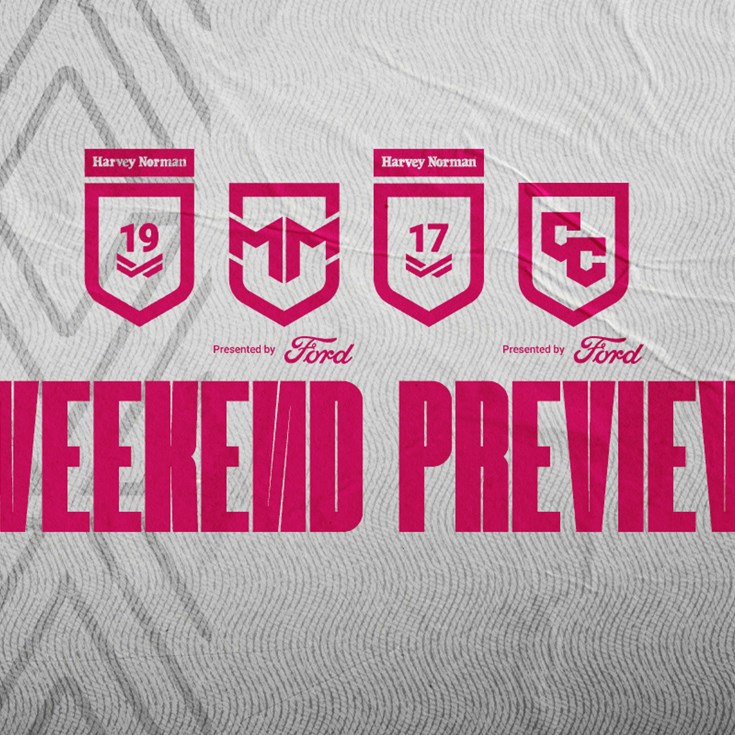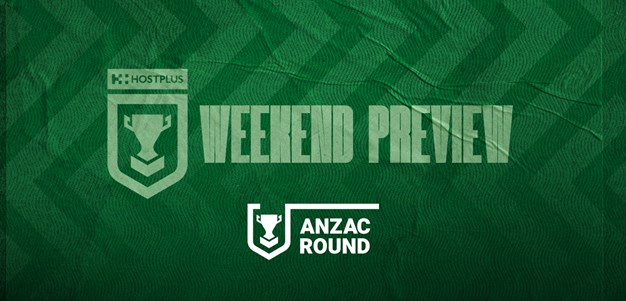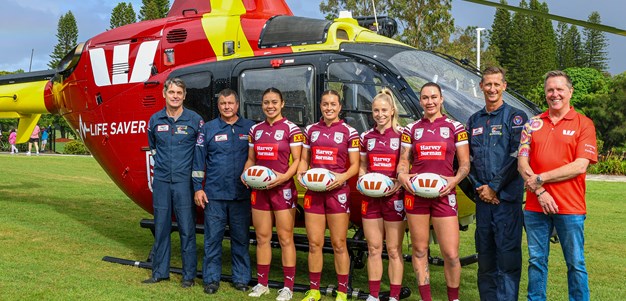Gratitude is one of the most powerful tools we have to help look after our own wellbeing and the wellbeing of the people around us.
We practise gratitude subconsciously in rugby league, and it’s accepted.
We do it in a game by celebrating when someone scores a try or get around each other when a teammate makes a big tackle, but there is a stigma attached to it for some people when it comes around to voicing it outside of our game.
I think it’s a good chance for people to step away from what they’re doing and celebrate the people around them that help them get to where they’re going and complete things they’re doing.
Obviously we’ve got so many volunteers, whether it be coaches, trainers, people setting up on game day, at canteens – there’s heaps of people that rugby league participants could acknowledge gratitude towards – and in the lives of our participants there’s parents, friends, family members, people that are there for them day in, day out.
Recently we started practicing gratitude in our region meetings and it felt great. I got acknowledged for supporting a few of the regions in front of all my colleagues and that was really good.
I didn’t do it for the acknowledgment, but it was good to know I had helped that person and it made me leave and go towards acknowledging someone I was grateful towards – so I guess it has that flow on effect as well, and I think that’s something that’s more effective when you do it face to face or in a personal way.
They’ve experienced what they feel like when they receive it, so they’re more likely to go on and do it for someone else.
But for some people there is still a feeling of a stigma of voicing gratitude, so we can look at other ways to do so.
You could start by trying journaling, which is as easy as finding a few things within your day that you’re grateful for and you try to build a streak of days of acknowledging things you’re grateful for.
It could just be the sun was out all day and you’re grateful for that. The whole point is to set up a routine where you can practice something positive for your wellbeing and something that could be positive for others.
You could also pick a person and write a gratitude letter to start acknowledging people in your life personally and help you work your way into voicing that.
QRL initiatives like the Positive Environment Program help stimulate positive behaviours and encouragement and acknowledgment of great people in the game.
Gratitude is also a key pillar in the GRIP program (Gratitude, Resilience, Intent, Pride) that the wellbeing team delivers to clubs and teams throughout the state. Every participant receives a gratitude journal they can use to start acknowledging people.
If your club or team would like a wellbeing representative to deliver a GRIP session, which usually lasts 45 minutes to one hour (or we can tailor a program to suit your needs), fill out the expression of interest form on our website.





